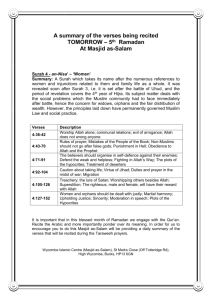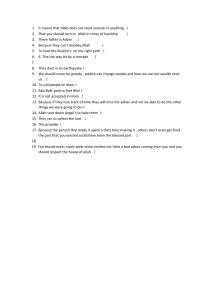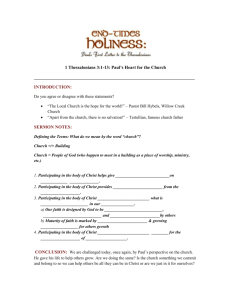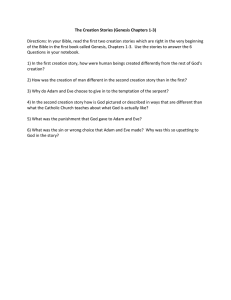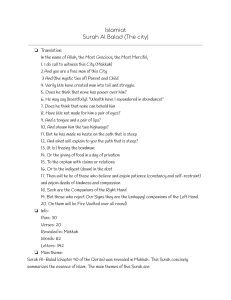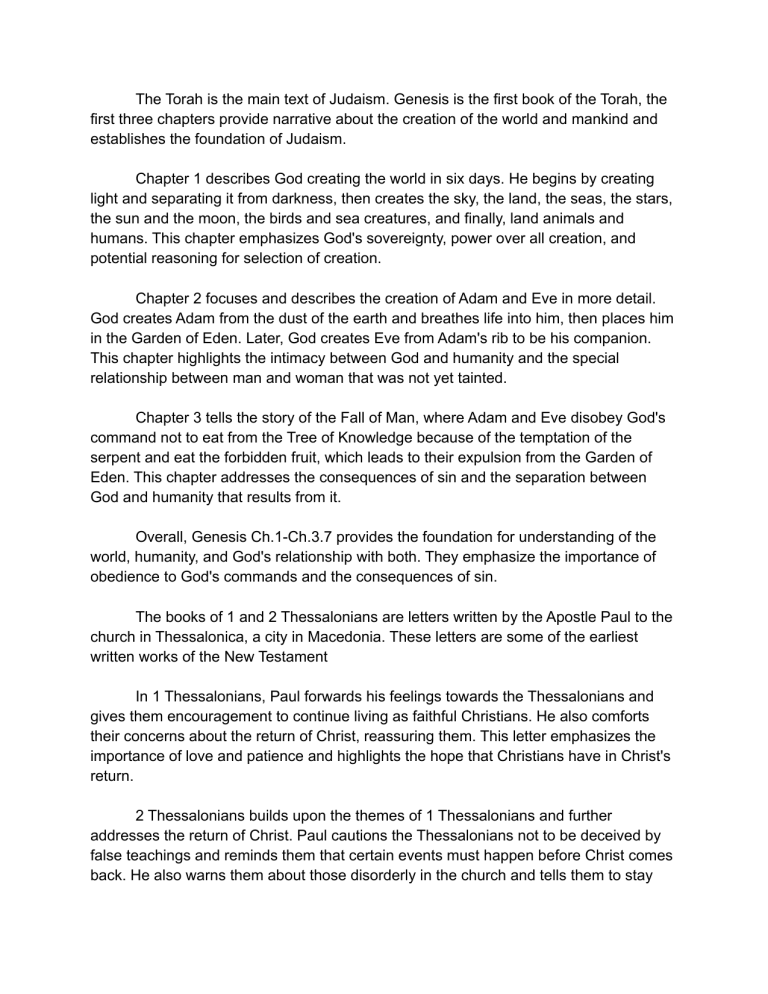
The Torah is the main text of Judaism. Genesis is the first book of the Torah, the first three chapters provide narrative about the creation of the world and mankind and establishes the foundation of Judaism. Chapter 1 describes God creating the world in six days. He begins by creating light and separating it from darkness, then creates the sky, the land, the seas, the stars, the sun and the moon, the birds and sea creatures, and finally, land animals and humans. This chapter emphasizes God's sovereignty, power over all creation, and potential reasoning for selection of creation. Chapter 2 focuses and describes the creation of Adam and Eve in more detail. God creates Adam from the dust of the earth and breathes life into him, then places him in the Garden of Eden. Later, God creates Eve from Adam's rib to be his companion. This chapter highlights the intimacy between God and humanity and the special relationship between man and woman that was not yet tainted. Chapter 3 tells the story of the Fall of Man, where Adam and Eve disobey God's command not to eat from the Tree of Knowledge because of the temptation of the serpent and eat the forbidden fruit, which leads to their expulsion from the Garden of Eden. This chapter addresses the consequences of sin and the separation between God and humanity that results from it. Overall, Genesis Ch.1-Ch.3.7 provides the foundation for understanding of the world, humanity, and God's relationship with both. They emphasize the importance of obedience to God's commands and the consequences of sin. The books of 1 and 2 Thessalonians are letters written by the Apostle Paul to the church in Thessalonica, a city in Macedonia. These letters are some of the earliest written works of the New Testament In 1 Thessalonians, Paul forwards his feelings towards the Thessalonians and gives them encouragement to continue living as faithful Christians. He also comforts their concerns about the return of Christ, reassuring them. This letter emphasizes the importance of love and patience and highlights the hope that Christians have in Christ's return. 2 Thessalonians builds upon the themes of 1 Thessalonians and further addresses the return of Christ. Paul cautions the Thessalonians not to be deceived by false teachings and reminds them that certain events must happen before Christ comes back. He also warns them about those disorderly in the church and tells them to stay away from them. This letter stresses the importance of living disciplined, and encourages the Thessalonians to pray for one another and for Paul's ministry. Overall, the letters of 1 and 2 Thessalonians provide insights into the early Christian church and the struggles of their people. They are constantly reminded the importance of living a holy and disciplined life, and the hope that believers have in Christ's return. Surah 42 and Surah 57 are two important chapters (Surahs) in the Qur'an. These chapters cover a variety of themes, including the superiority of Allah, the importance of following His guidance, and the consequences of disobedience. Surah 42, also known as Ash-Shura, emphasizes the importance of seeking Allah's guidance and following His commands. It repeats the idea that Allah is the only source of true knowledge and that He only holds power to guide humanity to salvation. The chapter also addresses the issue of religious differences, highlighting the importance of mutual respect among different religious communities and human relationship in general, once again emphasizes the idea that the ultimate goal of life is to seek Allah's pleasure and attain eternal salvation. Surah 57, also known as Al-Hadid, focuses on the idea that everything belongs to Allah and that we should live according to His will. The chapter emphasizes the test-like nature of this life and the importance of preparing for the afterlife. It encourages believers to give generously in charity and to be patient in the face of adversity, reminding them that all difficulties are ultimately temporary and that Allah will reward them for their perseverance. Overall, these two chapters highlight the key themes of the Qur'an, including the sovereignty of Allah, the importance of seeking guidance, and the ultimate goal of attaining eternal salvation.


